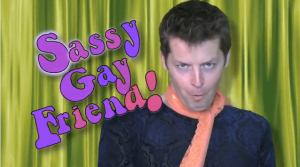Flashback to the Super Bowl in 2004. Remember who was playing? Neither do I. But this was a historic Super Bowl because it was when Justin Timberlake indecently exposed Janet Jackson’s breast during the halftime show. The day after, Chad Hurley, Steve Chen, and Jawed Karim, heard all commotion about the incident but missed it. Unfortunately, none of them could find a video of the episode, so they were out of the loop. This miniature tragedy helped plant the idea of YouTube, a realm allowing easy sharing of video content among users. Perhaps YouTube’s history gave you a chuckle, but it’s surprising how transformative this media titan has become. I chatted with Morgan Taylor, a senior at UPS, about her senior thesis on YouTube’s impact on the media market and it has revolutionized entertainment as we know it.
HR: Can you give Sound Economics readers a brief overview of your topic?

My thesis is about how online video content has impacted the traditional media market. Online access to content allows people to view entertainment whenever they want and at a lower cost. That’s a lot of power to the consumer. Emergence of online content is breeding a new type of competition in the media space by capturing viewership on a platform other than the television set. What’s the significance? We see this seismic shift to online viewership for content and the question is how much online sources are undercutting market share among existing media giants (NBC, Fox, CBS, and CW) and how transformative this is to traditional media as we know it.
HR: In your thesis you talked a lot about YouTube. How much of an impact does YouTube have on traditional television viewership?

Here’s a crazy statistic: YouTube dominates 45% of web traffic for online video content. Economically speaking, if more people are viewing online, it means they are forfeiting time that could be dedicated to a different activity. Is that alternative watching content on a television set? For the most part, I decided it wasn’t. If you compare content on YouTube with television, they really can’t be perfect substitutes. Can you really say YouTube’s popular snippets like, Sassy Gay Friend suffices ones entertainment completely? Most likely not. Even though user generated genres are thriving thanks to YouTube, most watchers use traditional TV and online video content as complements since it is drastically different.
HR: Why can’t they be substitutes? What are glaring differences between videos on a YouTube channel and those on Fox or CBS?
Content on YouTube is unpolished, shorter in length, and requires little to no budget. The two huge draws to YouTube is that that new videos are being added constantly. Because the supply, variety, and diversity of content is so large, there’s something on YouTube for everyone. On the other hand, the Big Three offers polished and professional quality entertainment featuring celebrities you know, impressive graphics and effects, and storylines that keep you hooked. Furthermore, the survival of TV is ensured since it’s the primary source of news and special events, like the Super Bowl, State of the Union address, and Award Shows.
HR: What does all this mean for paid advertising?
Advertisers are aware of this online migration, so their strategy is shifting online as well. Cross-platform advertising is becoming extremely relevant as viewership is split between internet and television. Seeing as YouTube attracts 45% of web traffic for online video content, this only makes sense.
HR: Can you tell Sound Economics readers some cool facts you learned about YouTube?

For some amateur video makers, their channel on YouTube is not just a hobby but in some cases a full time job. I was so surprised about the level of dedication some people put into their videos. Additionally, successful YouTube stars that attract a lot of viewers have become entrepreneurs. Channels like PewDiePie, Nigahiga, and JennaMarbles are making millions on YouTube! Then if you actually watch these videos, you get so confused how people are making so much money on this…

Hey, very interesting topic. Is it possible to read the whole bachelor thesis somewhere ?